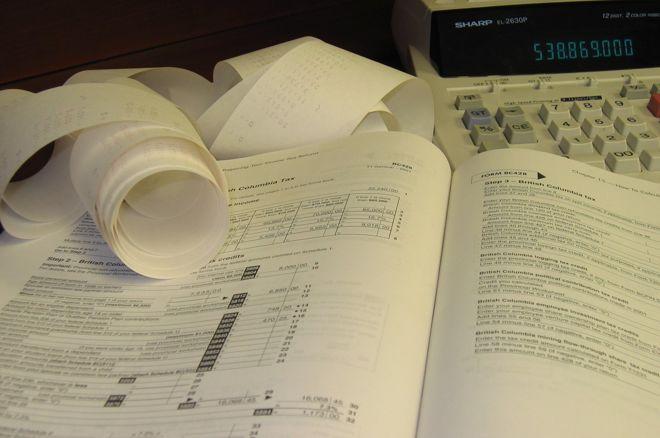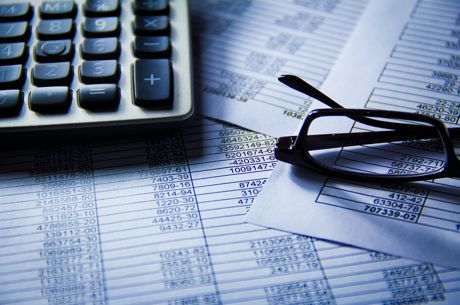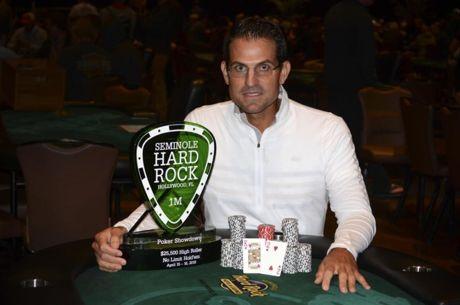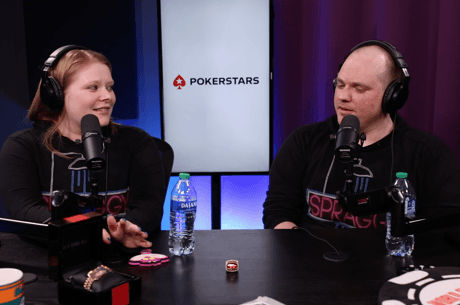Professional Tax Tips for Aspiring and Pro Poker Players

“Our new Constitution is now established, and has an appearance that promises permanency; but in this world nothing can be said to be certain, except death and taxes.”
The famous quote attributed to Benjamin Franklin remains true to this day, and as you may be aware – it’s that time of year again. PokerNews has covered tax-related topics in the past, but this year, we asked a couple professionals for some advice that may serve our clientele throughout the year — not just on tax day. Besides, if you’re looking for tax advice on tax day, let’s be real — you should probably be reading a blog about how to stop procrastinating.
When asked for top tax tips for poker pros, an attorney who represents countless professional gamblers, Mac VerStandig, put the top tip in simple terms, in line with Franklin’s warning above:
“File taxes. It is amazing — and endlessly disturbing — how many pros do not. These are one of only two certainties in life; ignoring them will not make them go away.”
Renowned Las Vegas tax professional for many poker pros Ray Kondler elaborated upon this point and the answer is no, you can’t run or hide from Uncle Sam.
“In most instances, the IRS is aware of their winnings and will file returns on their behalf using the least favorable filing status. This causes headaches down the line and often leads to large penalties and interest.”
Top Tax Tips
Some of the other tips offered up by the two professionals are ones familiar to gamblers of many kinds – keep records of your wins and losses (preferably with a trackable app), live in Nevada, Florida, Texas or another place that has no state taxes, keep all your receipts from poker trips, etc. They also emphasize the importance of planning ahead – keep the money you will owe for taxes separate from bankroll and spending money.
“Penalties and interest are the epitome of negative EV; don’t even risk it,” as VerStandig put it.
And while tournament players can’t always predict when they are going to have a big tournament score, Kondler tells players to be prepared, as healthy tournament cashes also mean shipping a large chunk of change over to the government, and players should be ready to deal with those tax implications.
“File taxes. It is amazing — and endlessly disturbing — how many pros do not."
“Be prepared for the ‘big score’ before it happens," he said. "Make sure you have any backing agreements solidified and are aware of the ramifications of the winnings.”
When writing off losses and expenses, Kondler says those filing as professional gamblers should use all their deductions, including retirement contributions. And when it comes to writing off losses to minimize the tax implications on yearly earnings, be diligent, but there is such a thing as getting too creative.
VerStanding shared a comical yet frightening anecdote without naming names, of course, that can serve as a warning for players trying to find ways to cancel out winnings.
“I once received a late night phone call from a client who had been arrested for trying to sell a large volume of losing betting slips,” he said.
While saving losing tickets from sports bets, tournament receipts and the like are all pertinent for filing at the end of the year, VerStanding warns that the IRS is increasingly onto these types of charades – not to mention it’s illegal and could lead to jail time.
To Go Pro, or Not To Go Pro…
For those considering trying to turn a profitable poker-playing hobby or side gig into a full-time grind, VerStandig has some words of wisdom.
“Cash flow stability is certainly the biggest consideration in jumping off a W-2 and starting a life where your mortgage payment is reliant on your not getting rivered too many times.”
While becoming a poker pro may come with a flexible schedule and freedom, VerStandig reminds aspiring pros that sustaining swings requires a deep bankroll and a separate budget set aside to pay the bills.
“The biggest mistake professional poker players make is getting too creative without professional help."
“Poker isn’t nearly the glamorous lifestyle Hollywood periodically suggests, and it is worth remembering that while your day job may come with fixed hours, an overly emotional boss, and too many TPS reports, those direct deposits on the first and 15th are in no way dependent on a stoned Yugoslavian tourist not pulling a one outer.”
Kondler recommends that anyone considering going pro learn about all that comes with being self-employed, including a self-employment tax which adds up to an additional 15.3% on your net earnings if filing as a professional gambler.
“The biggest mistake professional poker players make is getting too creative without professional help," he said. "Yes, there is a way to minimize income with strategic deductions.
"But trying to cobble together receipts from vacations where you maybe played online for 10 minutes, coupled with losing sports betting slips you found on the floor of Circus Circus, and a creatively penned essay on how all of your meals are business expenses because you wouldn’t be able to play if you weren’t alive... well, that’s a recipe for disaster. There is an art to these things.”
So whatever you do in the next year, make sure to keep track of your monies and leave the tax work to a professional. You can get helpful and bankroll-saving information with a simple phone call, and plus, it will leave you more time to focus on increasing your win rate at the tables.








